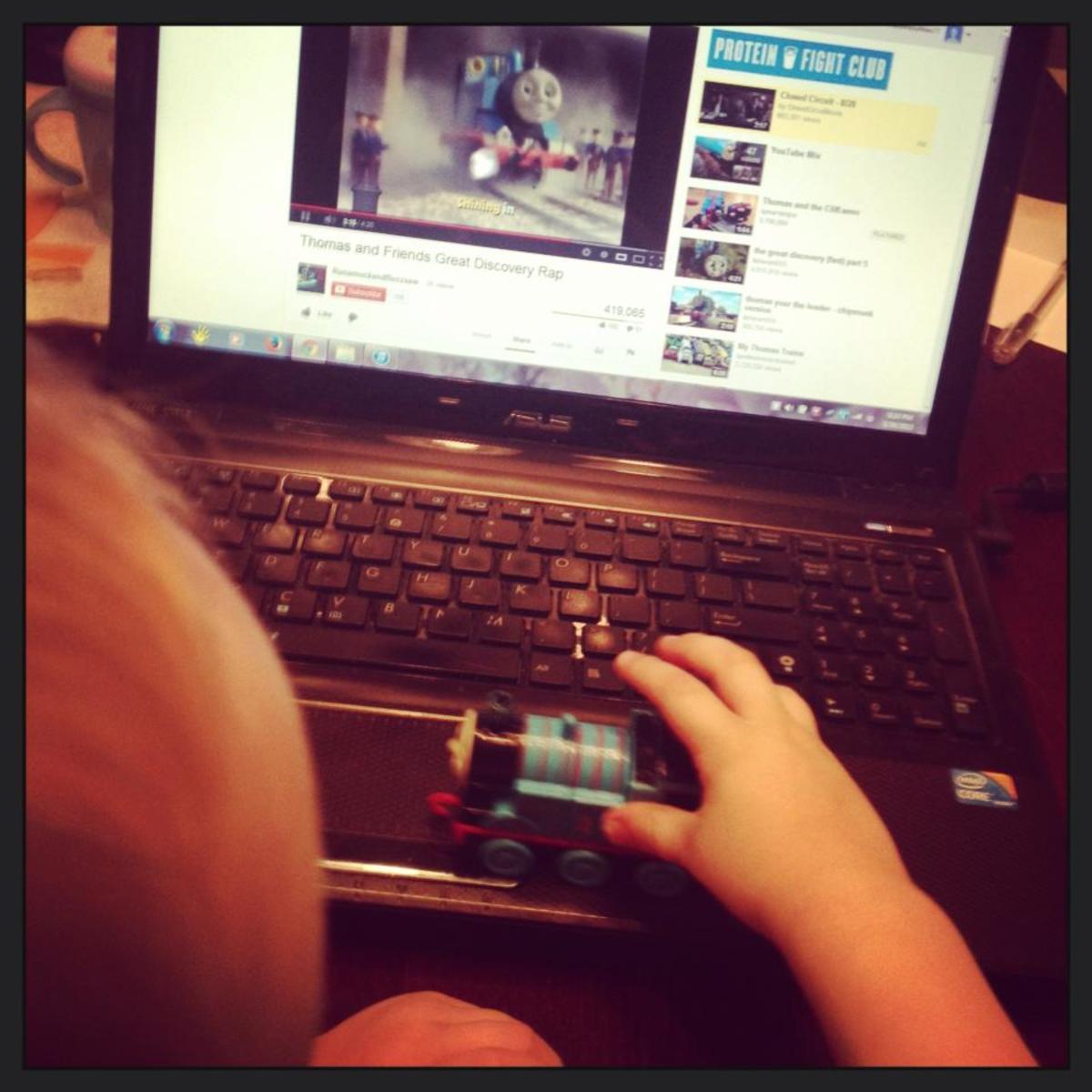Freelance Writing Strategy Examples: The Niche Writer

Freelance Writing Strategy Examples: The Niche Writer
When you decide that you want to test and prove your skills as a freelance writer, there are many questions that most writers are confronted with. Since you’ve chosen to become a freelance writer (whether on a full time basis or part time), it’s clear that you enjoy writing, and since you’ve decided to become a freelancer, it’s clear that making money is at least an important perk, if not absolutely essential to your success.
So our first two questions regarding the development of your freelance writing strategy are:
1. What will you write?
and
2. How will you make money writing?
These are the questions that I hope to answer in this article, under the specific blueprint of the Niche Freelance Writer.
Freelance Writing Niche Strategy
There are many, many options in the realm of freelance writing strategies, and I would have a hard time giving a good, well rounded explanation of every strategy, so I’ll focus on just a few and try to give you the valuable details we all need when we first start out.
The first strategy is the niche strategy. I know when I first started writing, I got sick of hearing it, but the further I got into the business, the clearer the importance of a niche became.
NOTE: Before I go further, I want to explain that you can be very successful writing in multiple niches, but what needs to be clear to your potential clients is that you are an expert within the niches you choose to write in.
Put yourself in your target client’s shoes – do you need high quality content for your blog to attract traffic (through higher page rank) to your business? What is your business – are you a doctor? Dentist? Artist? If you’re an artist, what is your genre, are you a surreal painter or a neoclassical sculptor?
Define – Define – Define. Pinpoint your target client and study that client, learn what it is that they need most, then provide it. This is where your niche comes into play – If your client is a website designer, then you’ll want to provide strong evidence that you have and can write material that a website designer would need. You should showcase the very best of your work on your portfolio website, and the writings should be articles/blog posts/newsletters (whatever style of writing you excel in or want to excel in) about website design.
Now I mentioned the importance of your portfolio site, and that provides us with another key writing strategy that every freelance needs to develop.
Your Freelance Writing Portfolio Website

Have writers started without a website – yes, I’m sure they have. Were those writers as successful as the writers who started without a site? Honestly, I don’t know, but if one of the strongest selling points is credibility (especially as a new freelance writer), I’d be willing to bet that they weren’t.
Your portfolio website is one of the strongest credibility pillars you can launch your career off of – when I say credibility pillar I mean some sort of tangible “proof” of your ability and credibility. Without these pillars, you won’t get clients, plain and simple.
Imagine George St. Pierre wrote a book about cage fighting before he started competing in the UFC. Or if Kim Kardashian wrote a memoir before she became famous (I wouldn’t read it one way or the other, but you get the point).
You have to be able to prove your worth, and there are many ways to do it! Starting with a portfolio site is your best bet – if you don’t have past client work (which let’s face it - no one does when they first start out), just write high quality pieces of content within your niche(s) until you have at least 6 to 10 strong pieces of “evidence” of your skill.
Here are a few key points to remember when designing your portfolio:
1. Keep it as organized and navigable as possible. Clients hate digging through a cluttered and disorganized site to find evidence that you’re worth working with.
2. Make sure it’s highly professional. Your niche may allow for some personalized flair, but the safe bet is to stay professional while showing personality and depth. The last thing you want is to seem like a green writer who just started in the business – don’t hint at that and don’t let yourself come across that way ever. The fact is, your writing is something to someone pretty much 100% of the time, so keep that in the back of your head as you write and develop your portfolio – someone needs your writing, and it’s your responsibility to show them how.
3. Gather as many testimonials as you can, as soon as you can. Never write fake testimonials, this is a clear sign of an inexperienced writer, and it’s better to hold off until you have real one’s. How do you get them? Write for free – for friends, family, etc – find low wage jobs on oDesk or Elance and complete them quickly while bending backwards for your clients. They’ll appreciate it and almost always leave valuable feedback that you can use as a testimonial on your portfolio site.
4. For the less tech savvy, and even the experts, I believe Wordpress is by far the most efficient, user friendly system to design your site with. Yes, you can develop high quality, professional portfolio sites with minimal ability (no coding skills needed), and even many expert webmasters are beginning to carry Wordpress in their toolbag.Find a crisp, organized, and professional template and spend $30-$100 to buy the rights to download and use it. Other than time, this should be the bulk of your expenses when creating a portfolio website!
So basically, we’ve covered how to choose a strong niche and prove your ability, but after you’ve done this, how do you make money with your writing strategy?
Freelance Writing Monetization Strategy

For some of us, this is the most exciting part of freelance writing; earning money doing something you love! So how do you do it?
You either hunt or you bait.
The Hunting Strategy
When a lion needs food, what does it do? It hunts for it – not in the desert, and not in the ocean, but near the oasis, where the zebra, wildebeests, and other herbivores graze.
You need to learn where your preferred client “grazes”; where he or she hangs out on the internet, where they post jobs for freelancers like you. Places like oDesk and Elance are a great place to start out if you understand that there are many others hunting for clients as well. You may have to offer extremely low rates to start out there, which is annoying, but necessary
If you want to write articles for magazines, get a solid understanding of their location/culture, that is, where they look, and how they hire. The Writer’s Market books are a great source for this and many other freelance writing markets. Make sure you get the latest one to ensure accurate information!
The Baiting Strategy
I won’t spend too much time on this strategy because your portfolio site is your ultimate form of bait, and we’ve already discussed that at length. There are however, many other ways to bait your clients to you:
1. Hubpages (one of the reasons I’m here!)
2. Squidoo
3. Ezine
4. Guest blogging
5. Your personal blog
6. Forums
There are many others besides these, but in my experience, these are the best!
To further explain the process, you can think of it like a fisherman would – he knows that the more lines he puts out, the more likely he is to catch more fish. The more “bait” you put out (on forums, article directories, blogs, and other sites), the more clients you’ll bring in.
NOTE: If the content you write on article directories, forums, etc is the bait, remember that the link back to your portfolio site is the hook. This isn’t your only goal – articles without links can serve as personal branding, and additional credibility, but that link adds another highly valuable dimension of benefits: a hook to bring the clients to your portfolio (where ideally, they will decide to contact and hire you), and a wealth of quality SEO backlinks (this will boost your portfolio site’s credibility and thus page ranking).
Final Thoughts

There are so many other strategies you can pursue as a freelance writer, and so many other ways to monetize your efforts. Even here on hubpages, although your primary purpose may be to rank better, or bring quality traffic to your site, there’s still the great opportunity to make money through Google Adsense and Amazon.
That’s one of the reasons why I highly recommend Hubpages and other quality article submission sites – the writing you do here is basically online real estate that continues to appreciate over time, especially if you take the time to incrementally add to the value of your articles, and get creative in monetizing them.
Well that’s all I have for now - for the budding freelance writers I hope this helps, and for the freelance vets, I hope you can give us some advanced feedback below!








